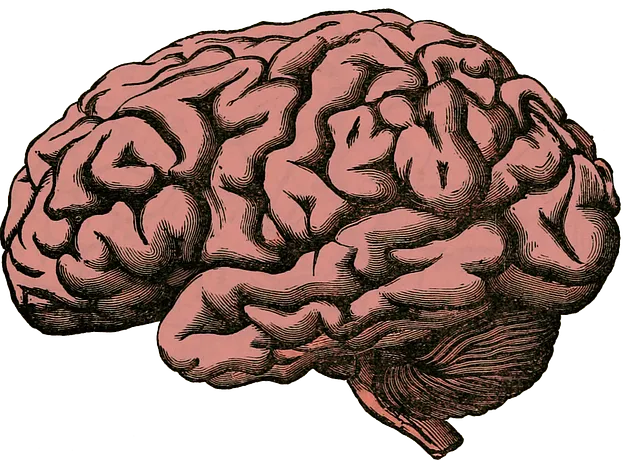In dynamic Lakewood, Social Skills Training (SST) is a transformative mental health support approach, empowering individuals with depression or anxiety by teaching communication & conflict resolution strategies. Resources from Kaiser play a vital role in this process, highlighting the symbiotic relationship between social skills and mental well-being. Integrating local resources and broader strategies leads to comprehensive healing and robust support networks. Lakewood's evidence-based practices, including art therapy and mindfulness exercises, coupled with Kaiser's specialized programs like compassion cultivation, offer holistic approaches tailored to diverse populations. Building resilience through SST is key to managing mental health conditions, as illustrated by the five-step guide: identify triggers, set goals, practice active listening, develop assertive communication, and engage in social activities. For seeking mental health help in Lakewood or through Kaiser, these initiatives provide valuable support.
Social skills training is a powerful tool in managing mental health conditions, fostering better connections, and improving overall well-being. This article explores the intricate link between social interactions and mental health, delving into the challenges faced by individuals with various conditions. We examine therapeutic approaches, including the roles of therapy and support groups, and provide practical strategies for daily life, leveraging resources like Lakewood and Kaiser for mental health support. Additionally, we offer a step-by-step guide to building resilience in social situations.
- Understanding the Connection Between Social Skills and Mental Health
- Identifying Challenges in Social Interaction for Individuals with Mental Health Conditions
- The Role of Therapy and Support Groups in Enhancing Social Skills
- Practical Strategies for Daily Life: Lakewood and Kaiser Resources for Mental Health Support
- Building Resilience and Navigating Social Situations: A Step-by-Step Guide
Understanding the Connection Between Social Skills and Mental Health

In the world of mental health support, acknowledging the profound impact of social skills cannot be overstated. Social Skills Training (SST) is a game-changer when it comes to addressing various conditions, especially in a bustling community like Lakewood. Many individuals struggling with mental health issues, such as depression or anxiety, often find themselves isolated, which can exacerbate their symptoms. By learning effective communication and conflict resolution techniques, these individuals can navigate social situations more confidently. This is where Kaiser’s resources come into play, offering tailored programs to help residents access the support they need.
The connection between social skills and mental health is a two-way street. Poor social interactions can contribute to or worsen existing mental health conditions. Conversely, enhancing social skills through training can serve as a powerful tool in depression prevention and overall well-being. Conflict resolution techniques, for instance, empower individuals to handle interpersonal challenges constructively, fostering healthier relationships and improving their support networks. Understanding this dynamic is crucial when seeking mental health help, whether from Lakewood resources or beyond, as it paves the way for more holistic healing and a stronger support system.
Identifying Challenges in Social Interaction for Individuals with Mental Health Conditions

Individuals with mental health conditions often face unique challenges when it comes to social interaction. These challenges can be multifaceted and deeply intertwined with their specific disorder. For instance, someone living with anxiety disorders might experience difficulty initiating conversations or maintaining eye contact, while individuals battling depression may struggle to express their feelings or show interest in others. Such barriers can significantly impact their ability to form and maintain meaningful relationships, leading to isolation and further exacerbation of symptoms.
In the context of Lakewood and Kaiser’s focus on mental health care, understanding these challenges is crucial. The Community Outreach Program Implementation at these institutions plays a vital role in addressing social skills gaps. Through Mental Wellness Journaling Exercise Guidance, individuals can learn to recognize and manage their emotions during interactions. Additionally, promoting self-care practices like preventing burnout can enhance overall mental wellness, making it easier for them to engage socially.
The Role of Therapy and Support Groups in Enhancing Social Skills

Social skills training is a vital component of mental health care, and therapy plays a crucial role in this process. At Lakewood, our therapists utilize evidence-based techniques to help individuals with various conditions enhance their social interactions. Through individual or group therapy sessions, clients learn effective communication strategies, emotional regulation skills, and how to navigate social situations confidently. These therapeutic approaches are tailored to meet the unique needs of each person, fostering a supportive environment where they can practice and build upon these essential life skills.
Support groups further complement this training by offering a sense of community and shared experiences. Kaiser’s Community Outreach Program Implementation has shown significant success in creating safe spaces where individuals with mental health conditions can connect and support one another. These groups encourage open discussions, foster empathy, and promote the exchange of Mind Over Matter principles—all of which contribute to improved mood management and overall well-being. By combining therapy and support groups, Lakewood provides a comprehensive approach to social skills training, ensuring individuals receive the holistic help they need to navigate their mental health journeys effectively.
Practical Strategies for Daily Life: Lakewood and Kaiser Resources for Mental Health Support

For those seeking practical strategies to enhance social skills and navigate daily life with mental health conditions, Lakewood and Kaiser offer valuable resources. Lakewood’s programs focus on building resilience through various therapeutic approaches, including art therapy and mindfulness exercises, which can aid in managing symptoms and fostering better social interactions. Their dedicated team provides a safe space for individuals to learn and practice essential social skills, offering tailored support for unique needs.
Kaiser, with its comprehensive healthcare services, includes specialized mental health programs that integrate compassion cultivation practices and crisis intervention guidance. These initiatives empower individuals to cope with challenges effectively while promoting cultural competency training among healthcare providers. By combining these strategies, Lakewood and Kaiser ensure a holistic approach to mental health support, catering to diverse populations in need of effective and accessible resources.
Building Resilience and Navigating Social Situations: A Step-by-Step Guide

Building resilience is a key aspect of managing mental health conditions, and social skills training can play a pivotal role in this process. At Lakewood, Kaiser offers comprehensive programs designed to help individuals navigate social situations with confidence. Here’s a step-by-step guide to enhance your social interactions and foster better mental well-being:
1. Identify Triggers and Develop Coping Mechanisms: Start by recognizing the social scenarios or environments that trigger anxiety or distress. Whether it’s public speaking, attending social gatherings, or initiating conversations, understanding these triggers is the first step towards managing them effectively. Incorporate self-care practices like mindfulness meditation, deep breathing exercises, or engaging in hobbies to create a sense of calm and resilience.
2. Set Realistic Goals: Break down your social interactions into manageable goals. For instance, if attending social events is challenging, begin with smaller gatherings and gradually work towards larger ones. Setting realistic objectives allows for a sense of accomplishment and builds confidence over time. Remember, progress is not linear; it’s about consistent small steps forward.
3. Practice Active Listening: Effective communication is crucial in any social setting. Learn to be fully present during conversations by practicing active listening. This involves giving your full attention, maintaining eye contact, and asking relevant questions. By showing genuine interest in others, you create deeper connections and foster a sense of belonging, which is beneficial for depression prevention and burnout prevention.
4. Develop Assertive Communication Skills: Learning to express your thoughts, feelings, and needs assertively is essential for healthy social interactions. This skill set helps individuals set boundaries, refuse requests respectfully, and communicate their requirements clearly. Assertiveness allows you to navigate relationships more effectively and avoid feeling taken advantage of, promoting better mental health.
5. Engage in Social Activities: Join support groups or community activities that align with your interests. Participating in social events, whether it’s a book club, sports team, or volunteer group, offers opportunities for connection and belonging. These interactions can provide a sense of purpose, enhance self-esteem, and serve as a valuable outlet for stress relief.
Social skills training is a powerful tool in navigating the complexities of mental health. By understanding the connection between social skills and mental well-being, we can identify challenges faced by individuals with conditions like anxiety or depression during social interactions. Therapy, support groups, and practical strategies offer effective resources for enhancing these skills. For those seeking guidance, Lakewood and Kaiser provide valuable mental health support. Following a step-by-step guide to building resilience can empower individuals to confidently navigate social situations, fostering improved mental health outcomes.






